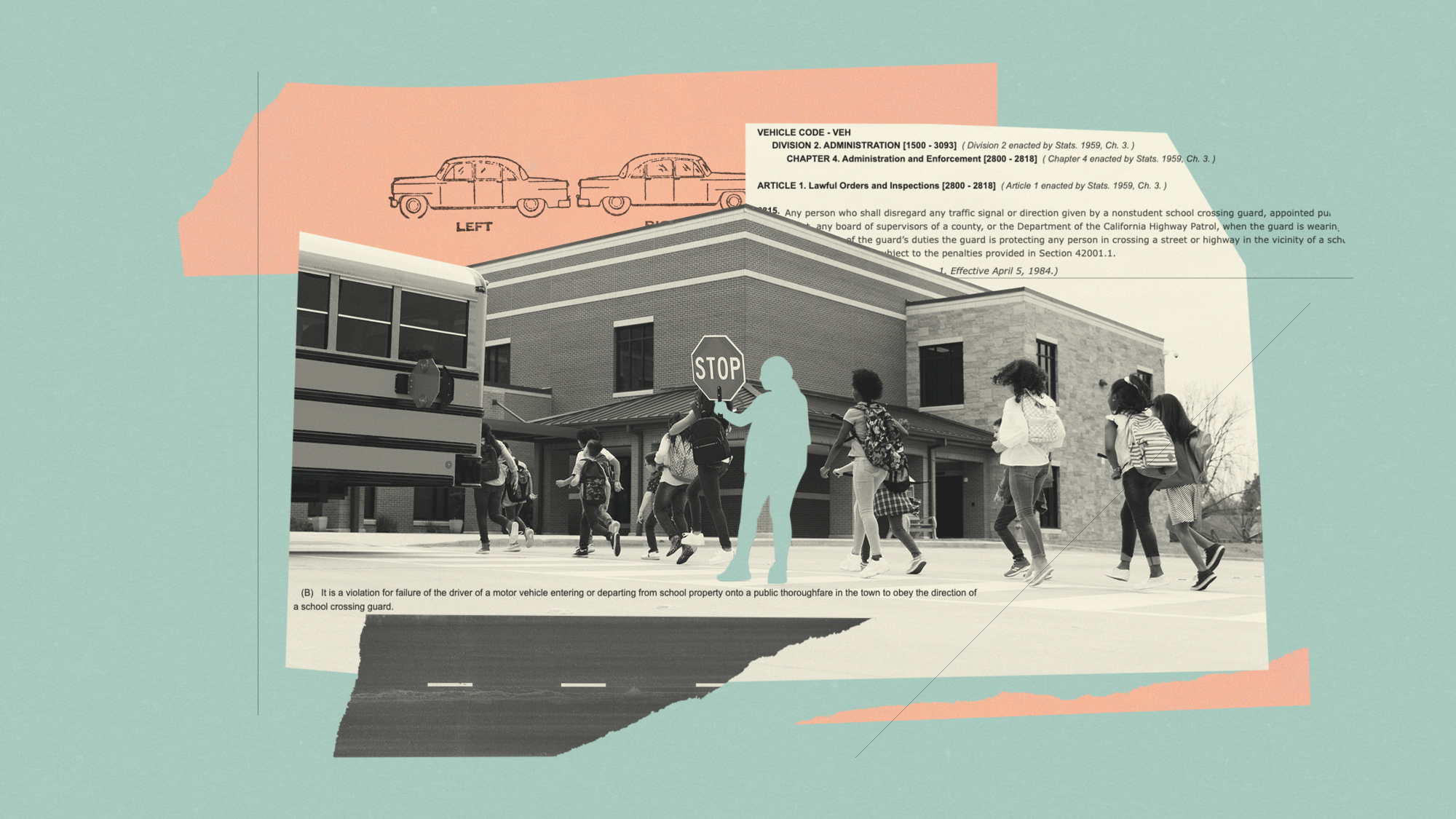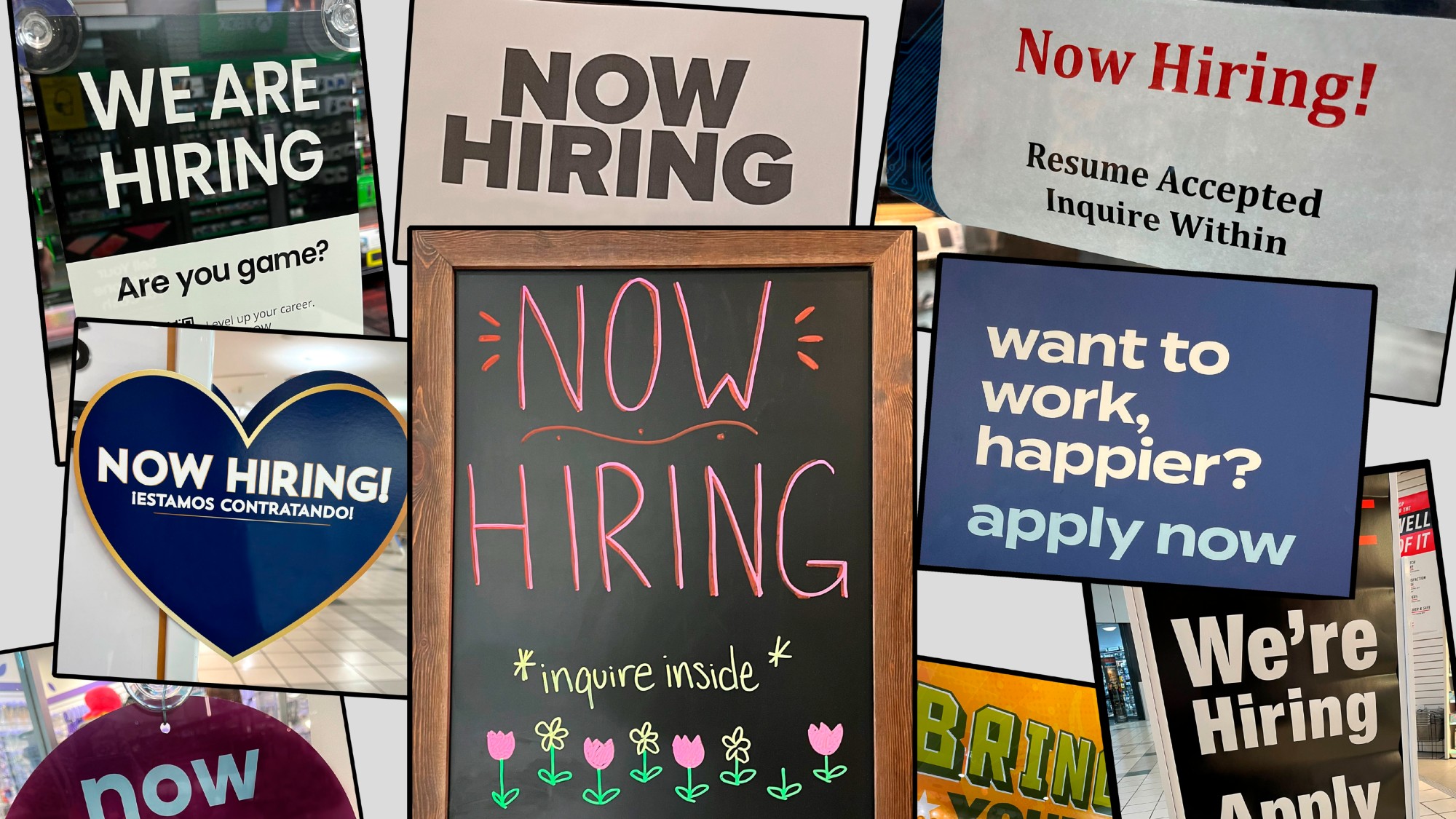How personality tests are locking autistic people out of jobs
Experts say psychometric tests make job applications challenging for neurodivergent people

A free daily email with the biggest news stories of the day – and the best features from TheWeek.com
You are now subscribed
Your newsletter sign-up was successful
Some of the UK's leading companies are still using personality tests when they recruit staff, despite government advice that they make finding jobs harder for neurodivergent people.
These tests are "locking autistic people out of jobs", said the Big Issue, and charities believe they are discriminatory.
Significant barriers
Personality tests, sometimes known as psychometric tests, aim to "determine if a worker will fit into a company's culture", said Huck, as well as "how they will respond to their employer's directions".
The Week
Escape your echo chamber. Get the facts behind the news, plus analysis from multiple perspectives.

Sign up for The Week's Free Newsletters
From our morning news briefing to a weekly Good News Newsletter, get the best of The Week delivered directly to your inbox.
From our morning news briefing to a weekly Good News Newsletter, get the best of The Week delivered directly to your inbox.
The tests are used by some of Britain's leading retailers, including Morrisons and John Lewis, but they make job applications "near impossible" for people with autism, said the Big Issue.
A government review has found that only three in 10 working-age autistic people are in work, compared with around five in 10 for all disabled people and eight in 10 for non-disabled people.
A study in Sage Journals found that one reason for the higher unemployment rate among autistic people may be that hiring processes are "inaccessible" for them, and a study on PubMed found that pre-employment personality tests "prey on several features of autism in an unfair way".
The London Autism Group Charity told the Big Issue that the tests "present significant barriers for autistic applicants" while Ambitious about Autism said "many highly qualified autistic people" have been "unable to find work" because of the "prevalence" of the tests.
A free daily email with the biggest news stories of the day – and the best features from TheWeek.com
Although it's illegal to discriminate against people with disabilities, personality tests can be used "to sidestep the law", said Accessibility.com. The tests "often screen for so many autism characteristics" that they "come just short of outright asking a person if they're autistic".
Personality tests are a "recipe for discrimination" against people with disabilities, wrote Henry Claypool for NBC News, and it's "junk science" to assume that people's "self-reported moods or confidence accurately correlate to their future job performance".
Human complexities
Companies in the UK are legally required to offer "reasonable adjustments" for people with additional needs during the hiring process, said Huck, and they may be offered "extra time, screen-reading software, or other provisions".
John Lewis said it made interview questions publicly available online to help applicants prepare, while Morrisons is introducing a new online assessment which it says "will have far greater functionality" to support all applicants, "including those that are neurodivergent”.
But completely "opting out of a personality test" is "rarely permitted", said Huck, and the tests have "great potential for harm" when used to decide the fate of a worker who is looking for employment and an income, because "people are far more complex than a quiz", and "it's about time that modern recruitment processes reflect that".
Chas Newkey-Burden has been part of The Week Digital team for more than a decade and a journalist for 25 years, starting out on the irreverent football weekly 90 Minutes, before moving to lifestyle magazines Loaded and Attitude. He was a columnist for The Big Issue and landed a world exclusive with David Beckham that became the weekly magazine’s bestselling issue. He now writes regularly for The Guardian, The Telegraph, The Independent, Metro, FourFourTwo and the i new site. He is also the author of a number of non-fiction books.
-
 Political cartoons for February 15
Political cartoons for February 15Cartoons Sunday's political cartoons include political ventriloquism, Europe in the middle, and more
-
 The broken water companies failing England and Wales
The broken water companies failing England and WalesExplainer With rising bills, deteriorating river health and a lack of investment, regulators face an uphill battle to stabilise the industry
-
 A thrilling foodie city in northern Japan
A thrilling foodie city in northern JapanThe Week Recommends The food scene here is ‘unspoilt’ and ‘fun’
-
 Ski town strikers fight rising cost of living
Ski town strikers fight rising cost of livingThe Explainer Telluride is the latest ski resort experiencing a patroller strike
-
 Employees are branching out rather than moving up with career minimalism
Employees are branching out rather than moving up with career minimalismThe explainer From career ladder to lily pad
-
 Out of office: Microretirement is trending in the workplace
Out of office: Microretirement is trending in the workplaceThe explainer Long vacations are the new way to beat burnout
-
 Being a school crossing guard has become a deadly job
Being a school crossing guard has become a deadly jobUnder the Radar At least 230 crossing guards have been hit by cars over the last decade
-
 Why 'faceless bots' are interviewing job hunters
Why 'faceless bots' are interviewing job huntersIn The Spotlight Artificial intelligence is taking over a crucial part of recruitment
-
 Champagne problems: migrant vineyard workers treated 'like slaves'
Champagne problems: migrant vineyard workers treated 'like slaves'Under the Radar Convictions spotlight the 'exploitation and misery' at the heart of the 'glamorous' industry
-
 How many people are working illegally in the UK?
How many people are working illegally in the UK?The Explainer Government vows 'nationwide blitz' on illicit workforce believed to number in the hundreds of thousands
-
 What is 'career catfishing' and why are Gen Z doing it?
What is 'career catfishing' and why are Gen Z doing it?Under The Radar Successful job applicants are increasingly disappearing before their first day